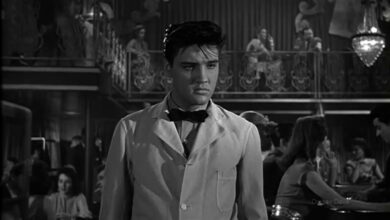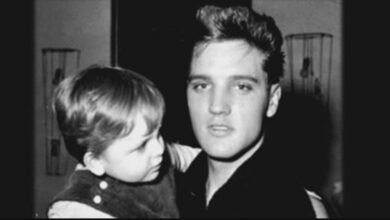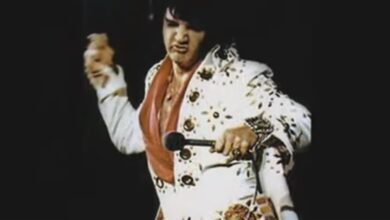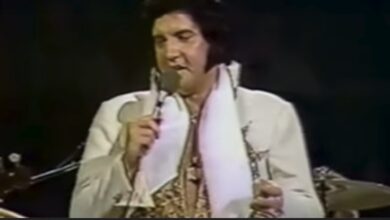Hearing this always leaves me breathless and longing for him.-
The rehearsal of Elvis Presley’s Gospel Medley for the 1968 Comeback Special offers a rare and intimate look at one of the most compelling segments of Elvis’s career. This medley, featuring “Sometimes I Feel Like a Motherless Child,” “Where Could I Go But to the Lord,” and “Up Above My Head,” showcases a powerful combination of raw emotion and exceptional vocal talent.
The rehearsal begins with “Sometimes I Feel Like a Motherless Child,” a traditional spiritual that reflects themes of loss and longing. In this early take, Elvis’s voice carries a profound sense of vulnerability and strength. His interpretation is marked by a raw intensity that underscores his deep connection to the material. The performance reveals his ability to convey complex emotions through his voice, capturing the heart of the song’s melancholy spirit.
As the medley transitions to “Where Could I Go But to the Lord,” the tone shifts to one of reflection and solace. Elvis’s vocal performance here is particularly striking. His voice, rich and resonant, conveys both comfort and a sense of earnest devotion. The song’s lyrics, which speak to finding refuge and support in the Lord, are delivered with a sincerity that resonates deeply with listeners. The rehearsal allows audiences to witness Elvis’s meticulous attention to detail and his commitment to delivering a heartfelt performance.
The final part of the medley, “Up Above My Head,” is a jubilant and spirited gospel number that contrasts with the previous songs’ more somber tones. This track provides Elvis an opportunity to showcase his playful and exuberant side. The lively rhythm and infectious chorus, “Up above my head, I hear music in the air,” are delivered with a sense of joy and energy that is truly uplifting. This segment highlights Elvis’s versatility as a performer, effortlessly shifting from poignant ballads to exuberant gospel.
Throughout the rehearsal, Elvis is accompanied by a group of backing singers and a tight-knit band, whose contributions enhance the overall performance. The interplay between Elvis and his collaborators is particularly notable. His interactions with the backing singers reveal a collaborative spirit and a willingness to explore the nuances of the gospel genre. The ensemble’s cohesive sound complements Elvis’s vocals, creating a rich and immersive musical experience.
Elvis’s performance in this rehearsal underscores his deep-rooted connection to gospel music, a genre that was significant throughout his career. Raised in a religious household, Elvis’s appreciation for gospel music was evident from his early recordings and performances. The 1968 Comeback Special, with its focus on rediscovering his roots and showcasing his vocal prowess, provided an ideal platform for him to revisit and celebrate this aspect of his musical heritage.
The medley’s rehearsal not only highlights Elvis’s exceptional vocal abilities but also his dedication to the emotional and spiritual dimensions of music. His engagement with the material, combined with his ability to convey both depth and exuberance, speaks to his enduring legacy as an artist who transcended genres and left a lasting impact on the music world.
In summary, the rehearsal of the Gospel Medley for the 1968 Comeback Special is a testament to Elvis Presley’s remarkable talent and his profound connection to gospel music. The raw and unfiltered quality of this performance captures the essence of Elvis’s artistry, showcasing his ability to evoke deep emotions and bring joy to his audience. For fans of Elvis, gospel music, or just exceptional music in general, this expanded version of the medley offers a memorable and meaningful listening experience.



